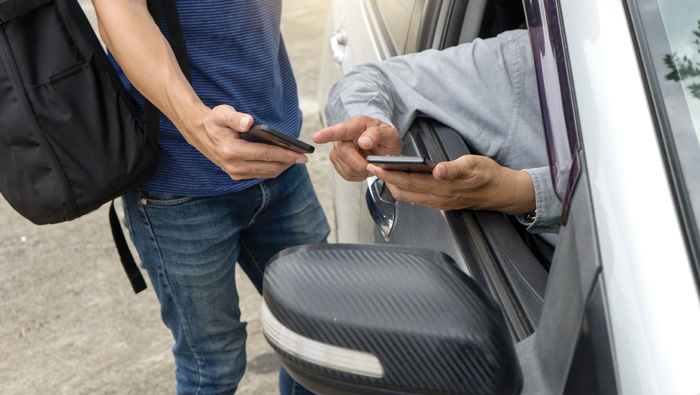
Muscat: It is illegal for expatriates to ferry passengers in their vehicles in return for money and can invite hefty fines, the Royal Oman Police (ROP) has warned.
According to Oman’s Traffic Law, running an unregulated carpooling service for profit carries a fine of OMR35 and may lead to the confiscation of the violator’s car.
“The illegal transporter is fined OMR35 the first time he is caught in the act. In case he repeats it and is caught for a second time, he will be fined and the vehicle he used for the offence will be confiscated.
“If he commits the same offence a third time, he will be fined and then referred to the Ministry of Manpower due to this violation of the Labour Law. Then, the fine will be OMR1,000,” an ROP official told the Times of Oman.
The official added that campaigns are repeatedly carried out to clamp down on illegal private transporters.
“ROP carries out patrols to catch the violators, who are using their private vehicles to transport passengers in return for money. It’s illegal,” he said.
ROP has urged the public to avoid using such vehicles, as some of these cabs lack safety and security features.
“People should not get on board such vehicles, as it’s risky for them and even poses a danger to their lives. Also, the cab driver could be driving without a licence,” he said.
The ROP official explained that low income expatriate workers sometimes choose to provide taxi services, as some members of the public will choose illegal taxis as a cheaper option, compared to regular taxis.
“We strictly advise people to not indulge in any illegal and unlawful activities in the Sultanate of Oman, which can not only put their lives at risk, but also the lives of others,” he added.
‘Serious legal issue’
Also, insurance companies have warned that drivers could run into legal troubles for engaging in carpooling for profit.
“Carpooling or taxis that are not registered, nor have a permit for commercial use, are placing the drivers at great risk, as this could lead to a serious legal issue.
“If the person driving a private car gets into an accident and causes serious damage to his car, or even injures someone, the passenger will have to pay out of his pocket if the driver is found guilty,” said Hamid Al Balushi from Oman Insurance Company.
The insurance company does not take responsibility for any act that violates the law, he added.
“We all work according to the report that is supposed to be registered with the ROP after accidents. That is always the source of information upon which we rely for insurance claims.
“The driver must know that if a private car is fully insured, but being used as a private taxi, and he or she gets into a serious accident, the insurance company will pay for the damages of the third party, but will charge it against the driver who caused the accident. Therefore, we strongly advise people to abide by the rules and regulations of the country,” a private insurance company official said.
Carpools not wrong, charging money is: ORSA
Ali Al Barwani, the CEO of Oman’s Road Safety Association (ORSA), said he is not against the idea of carpooling, as it involves people helping each other out. But making money from carpooling is illegal.
“I have nothing against carpooling, but I am not in favour of the idea of charging people money for it. Firstly, using private vehicles for commercial use is against the law. The driver is not only putting himself in danger, but also those people who are not aware of it, when driving them around the city.
“Secondly, I have not only seen private cars, but private vans, that are driving people from villages and charging money. I really want to reach out to people and tell them to not be fooled by these private drivers, and only approach vehicles that are registered by the authorities of the country,” said Al Barwani.
He added that the public should only seek out vehicles with red number plates and a label that reads ‘Taxi’ in bold letters, as these are the only vehicles that hold the necessary permit to operate as taxis.